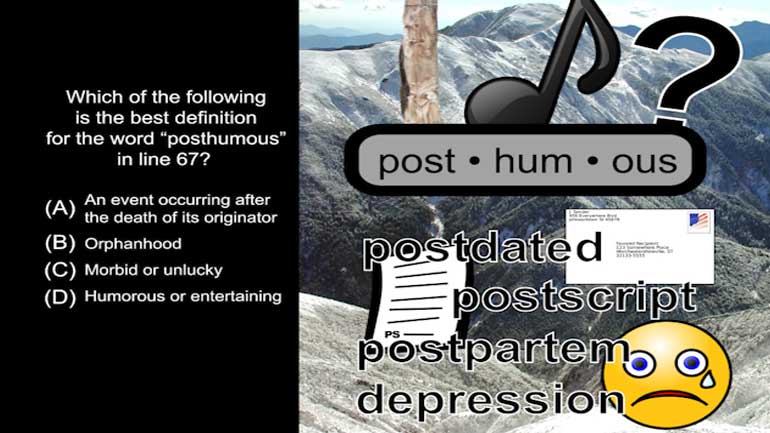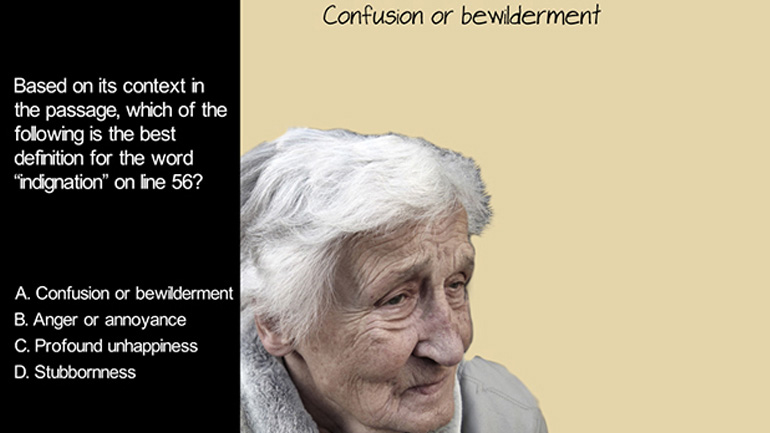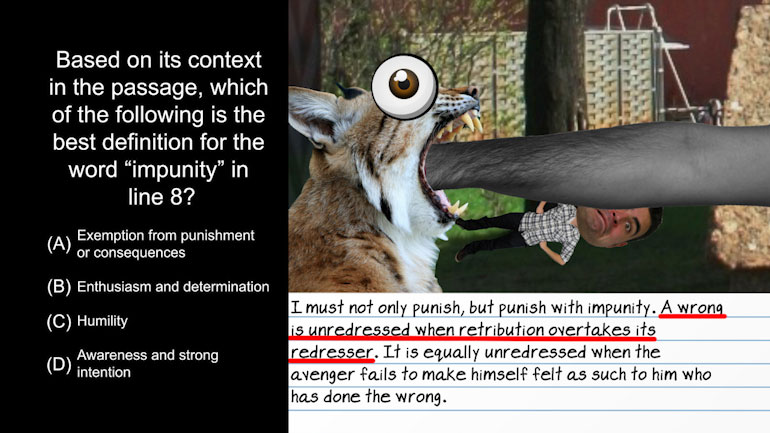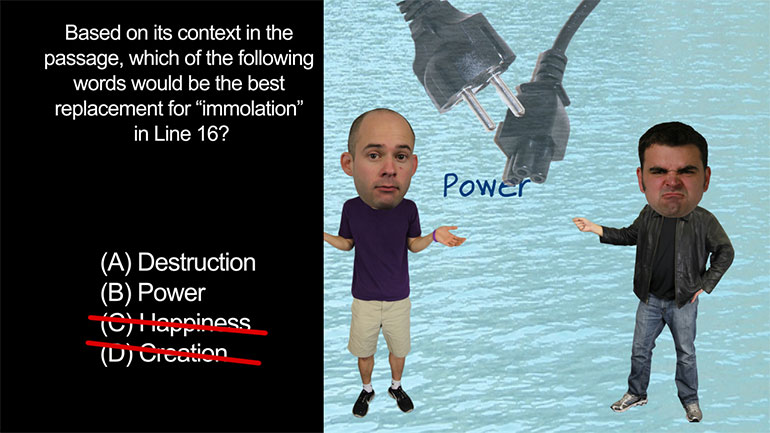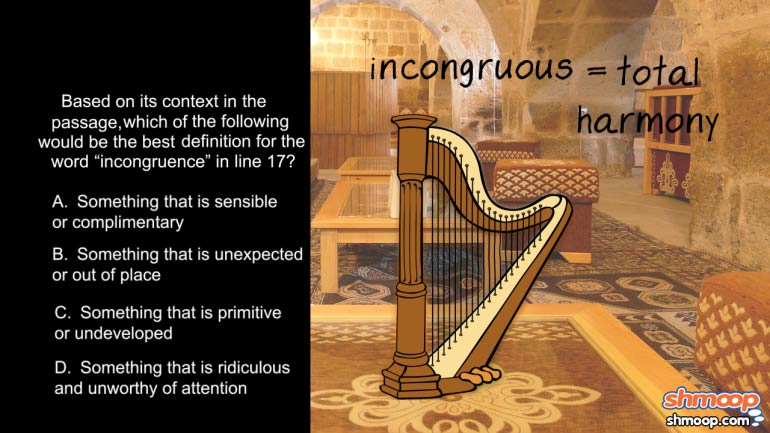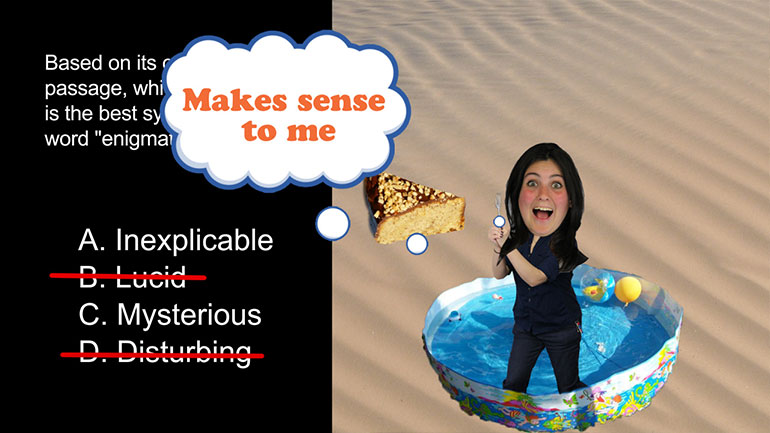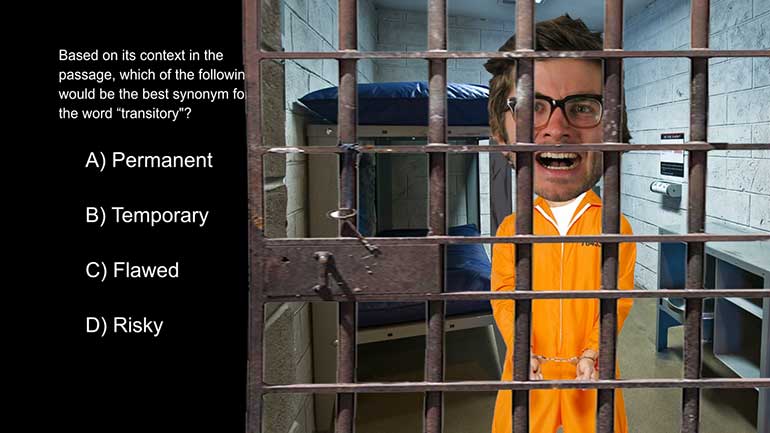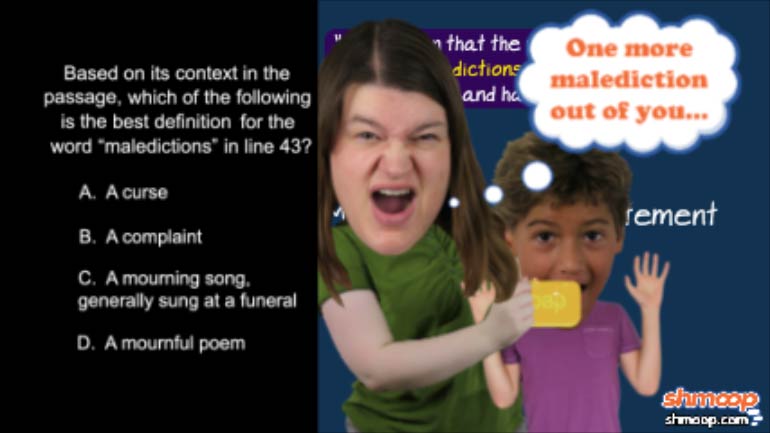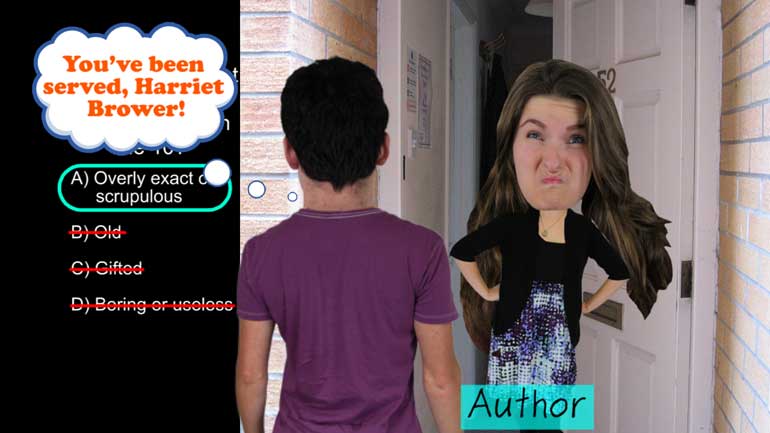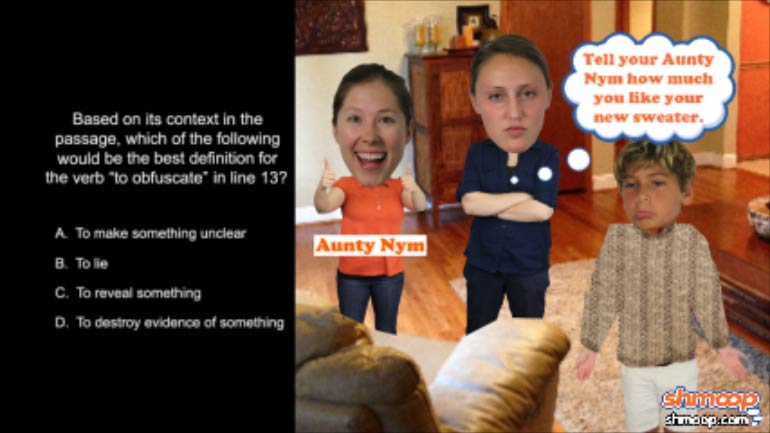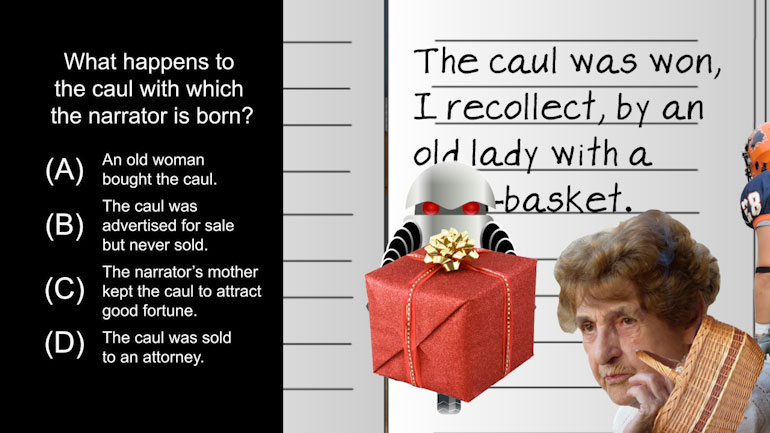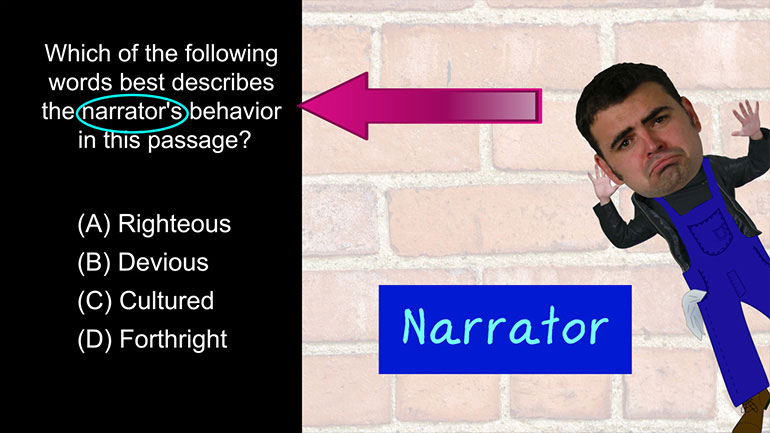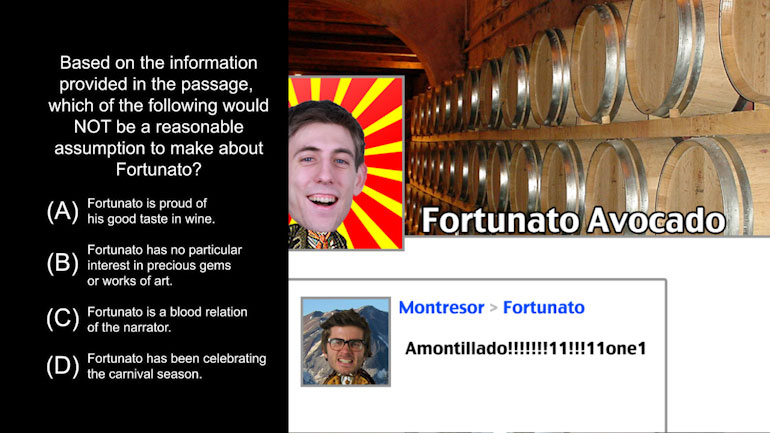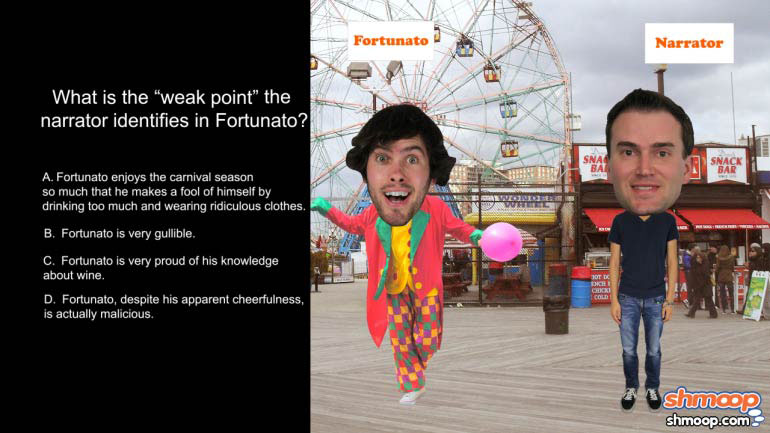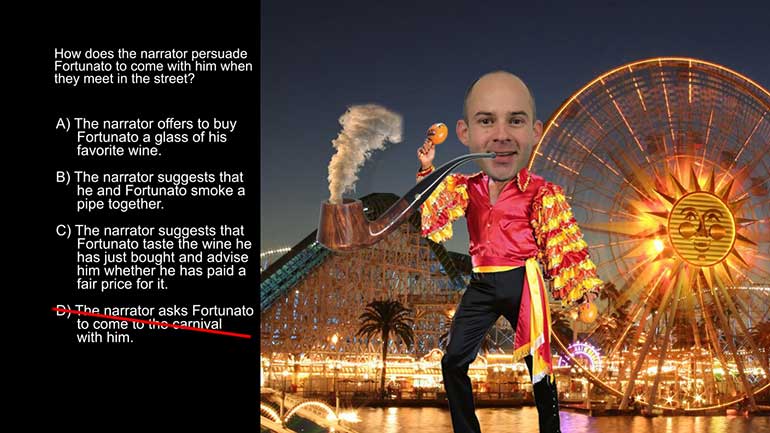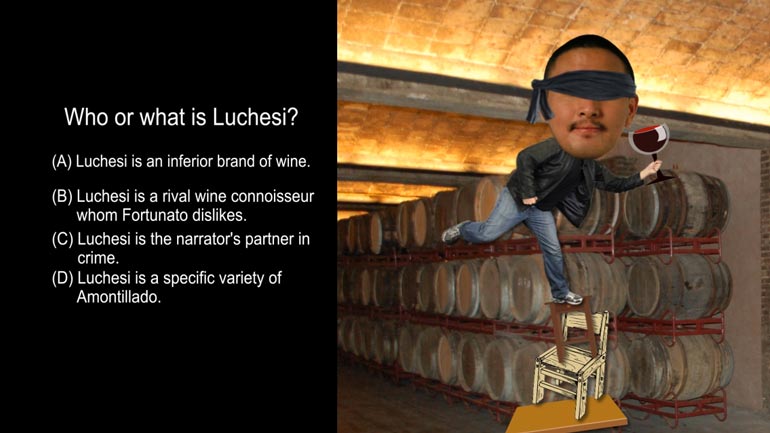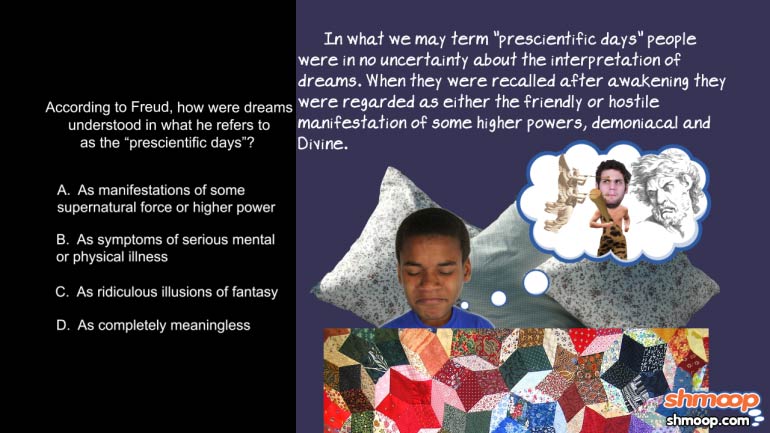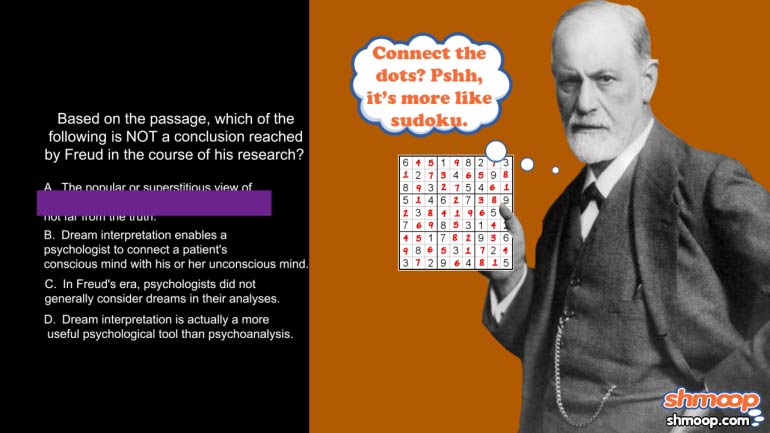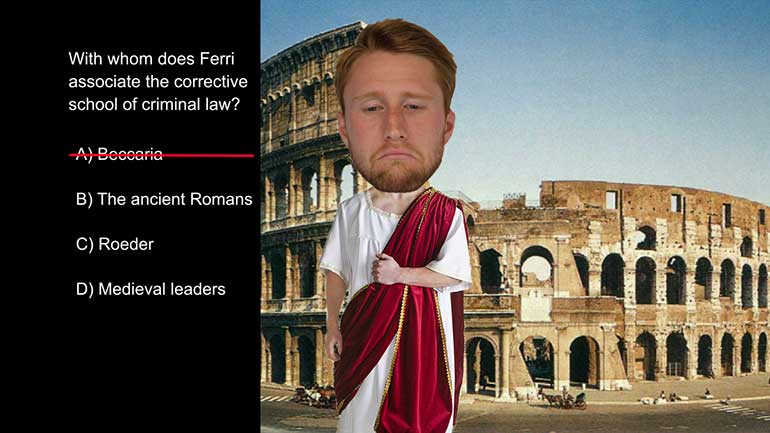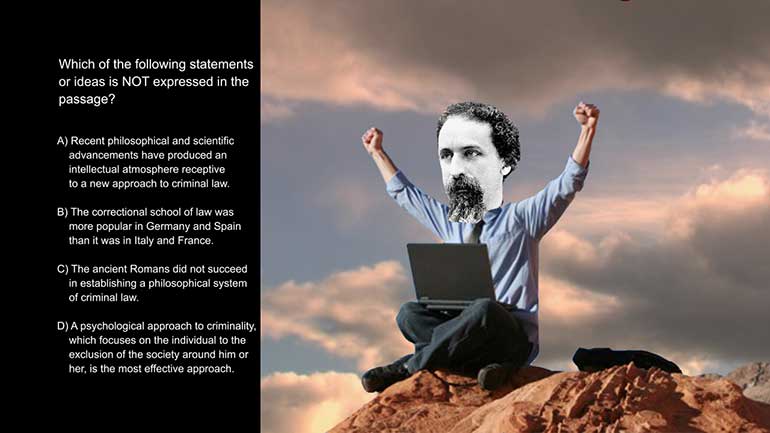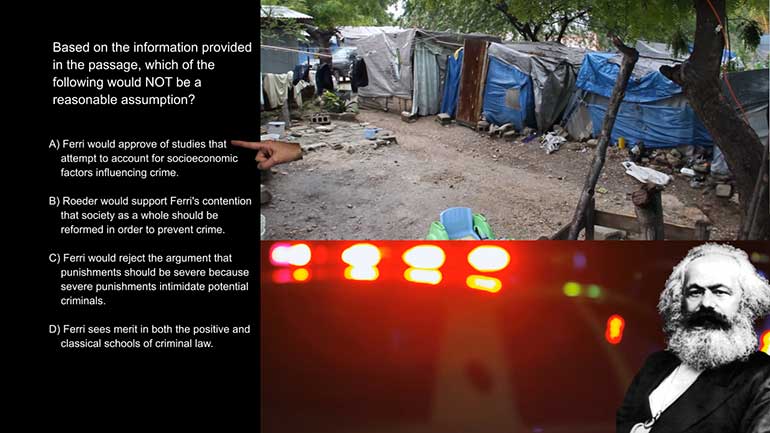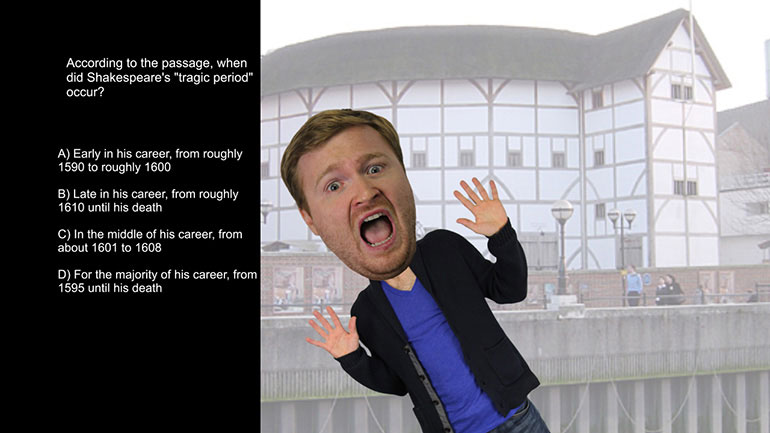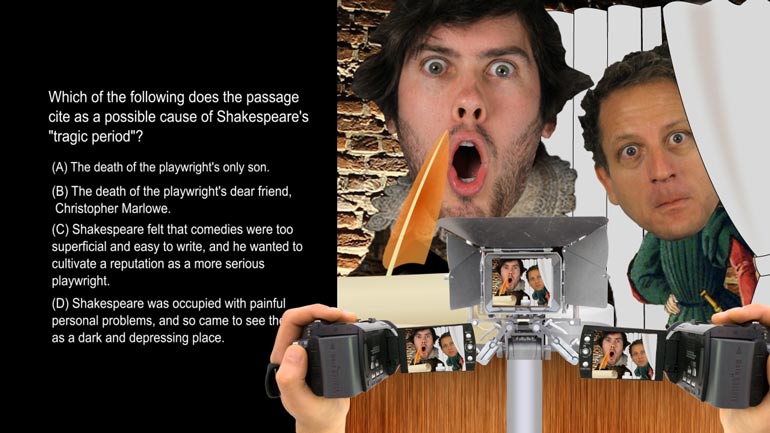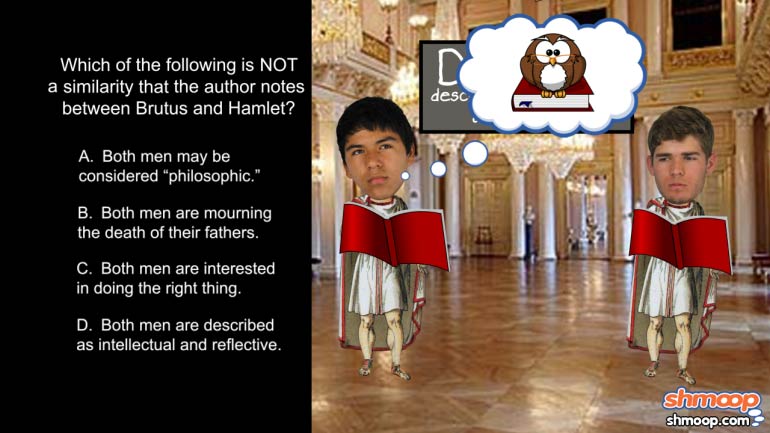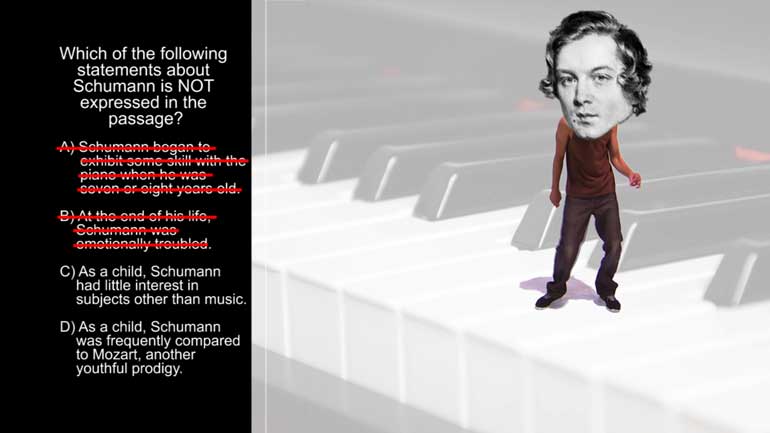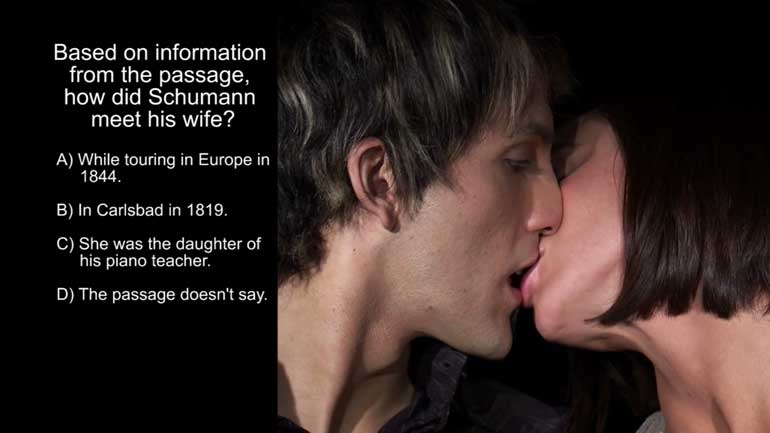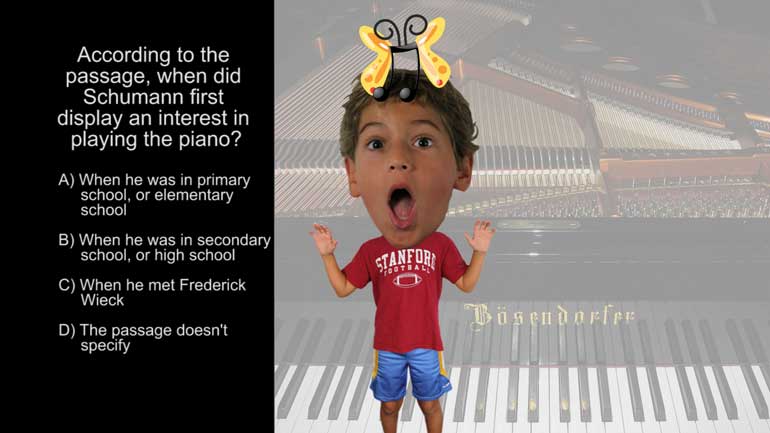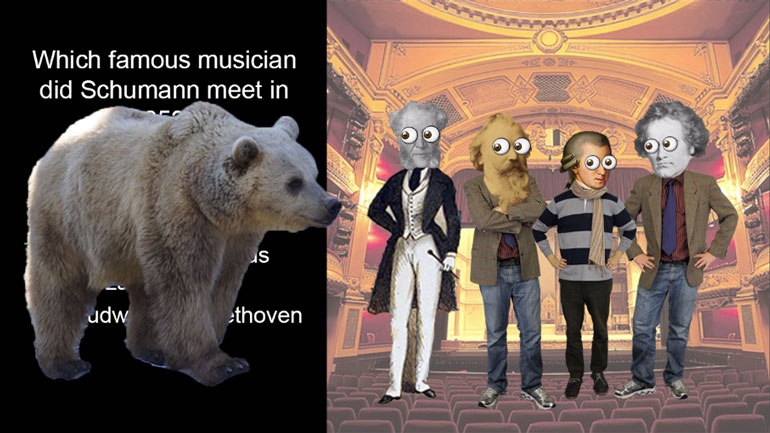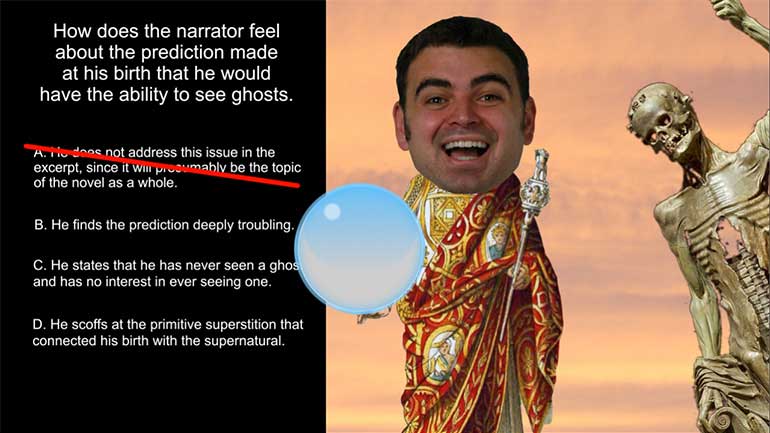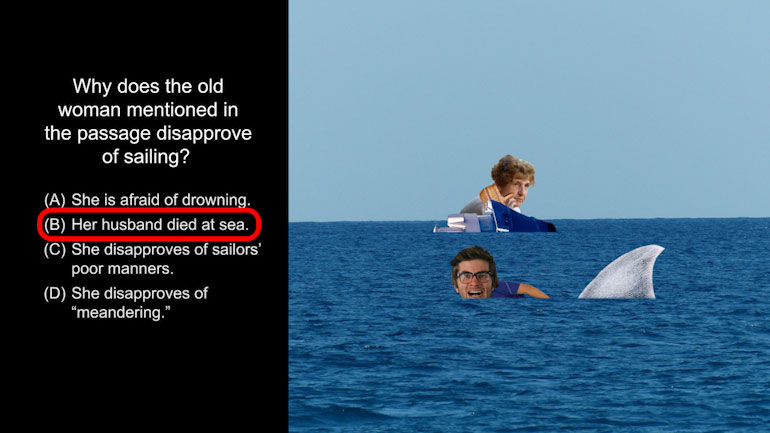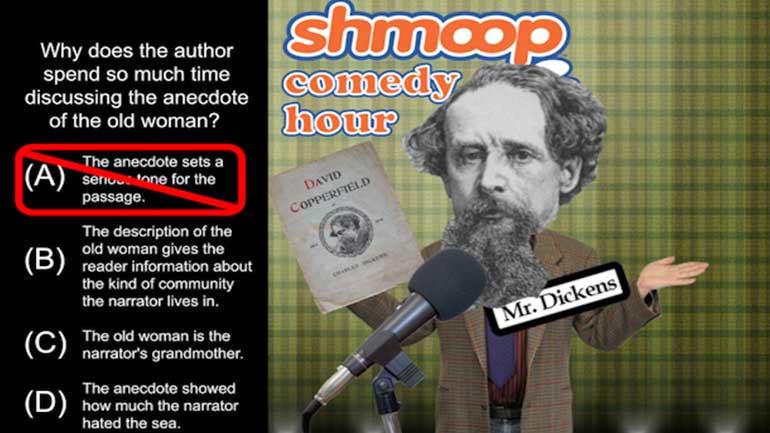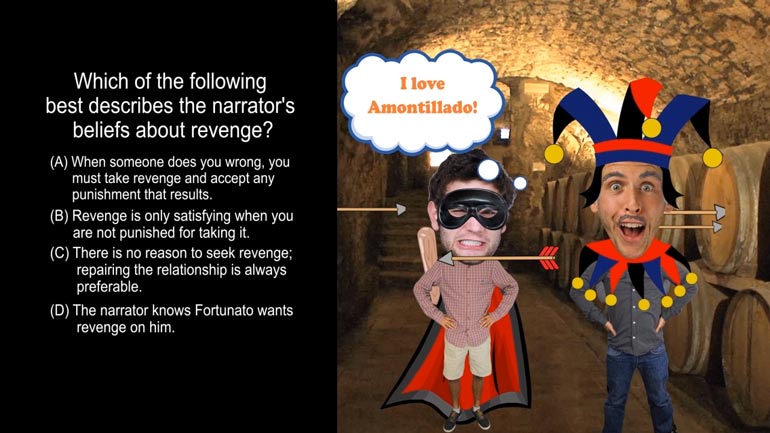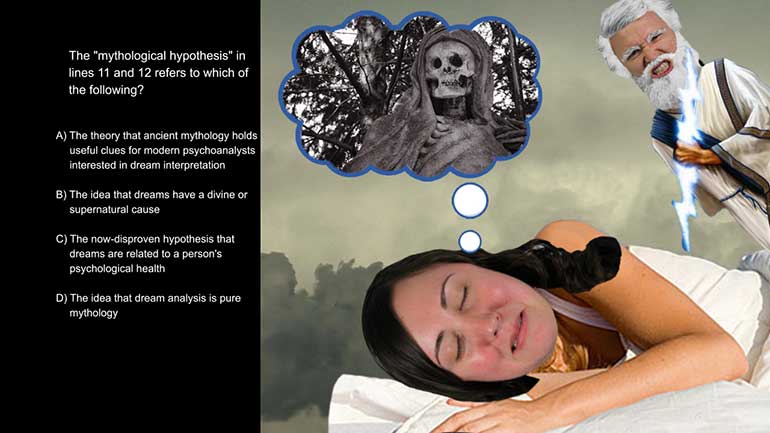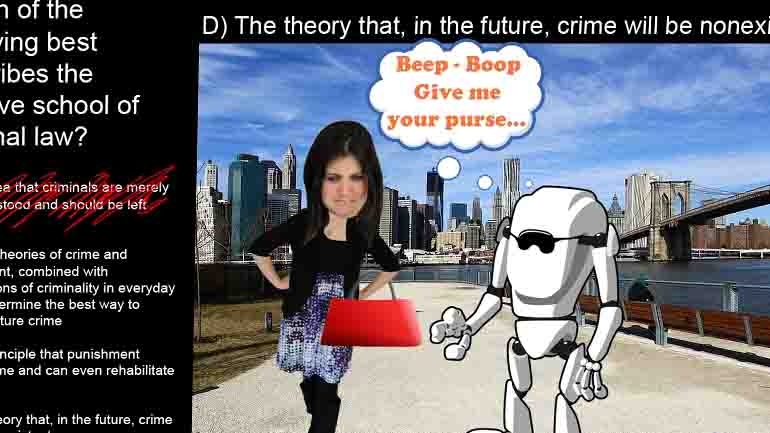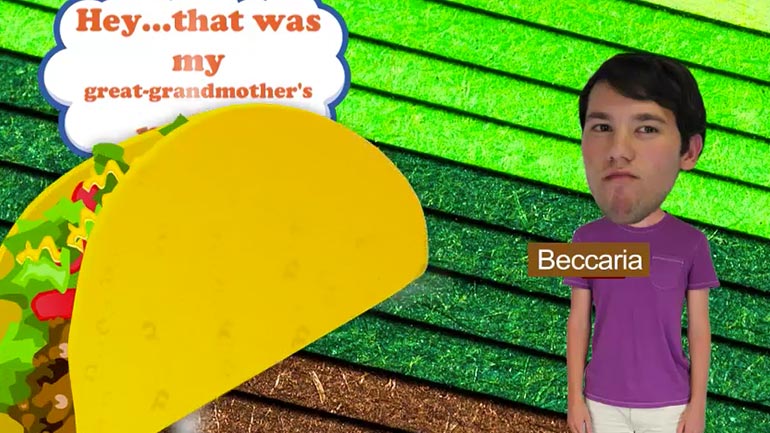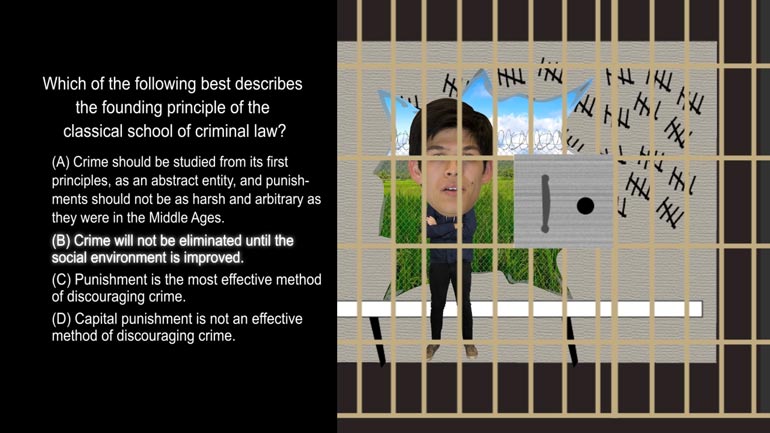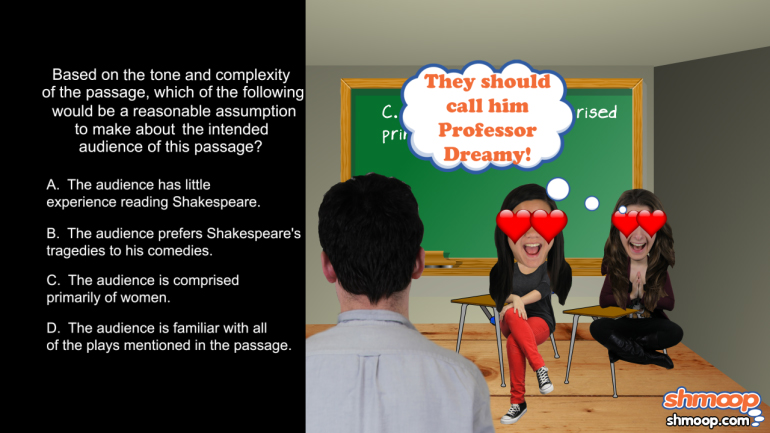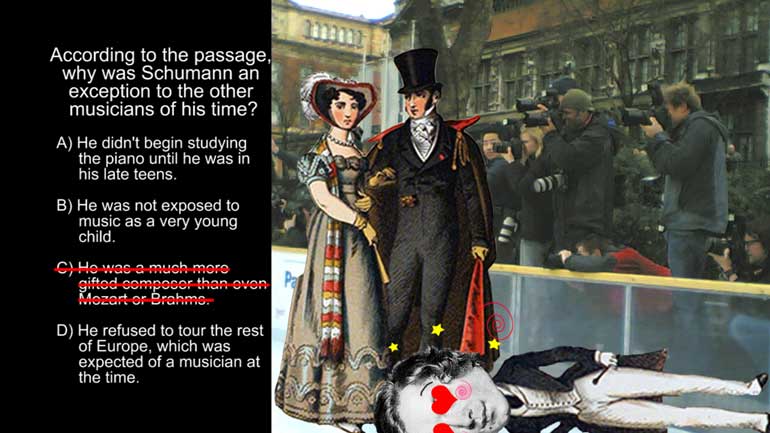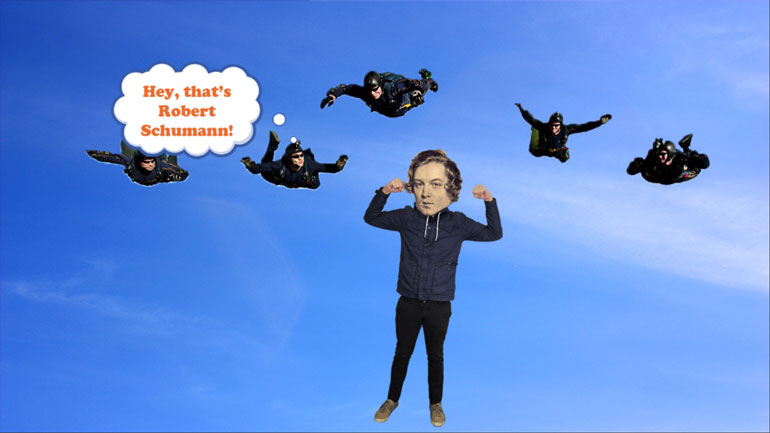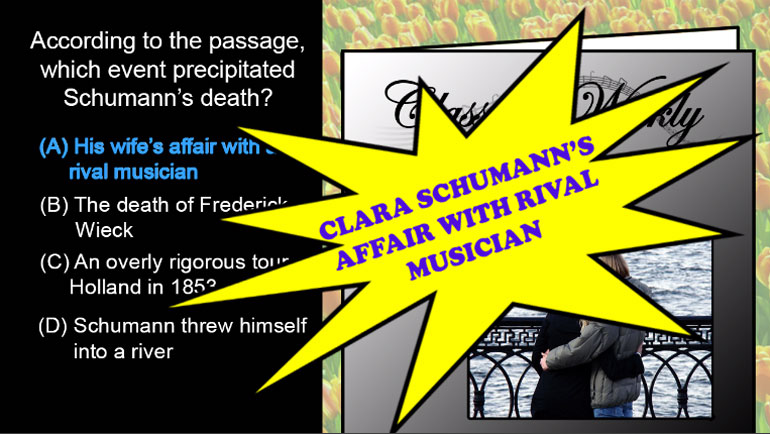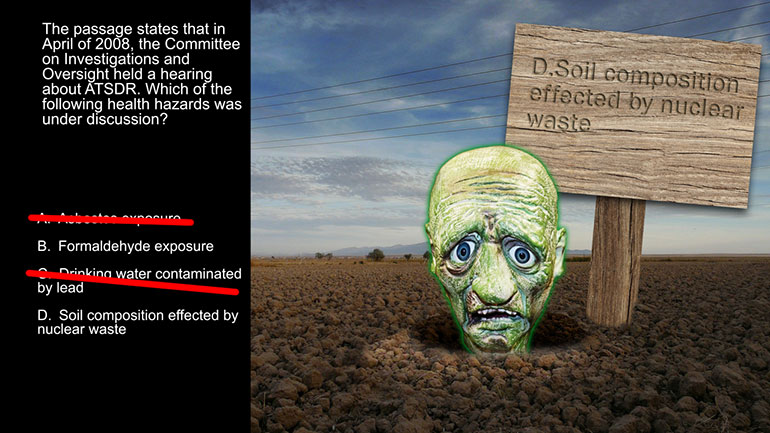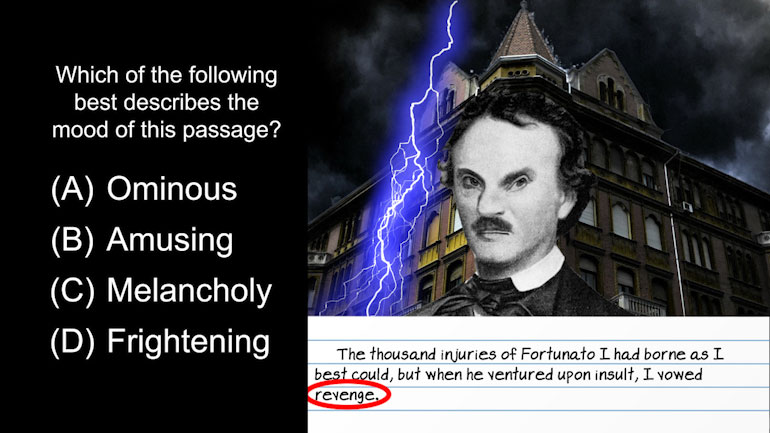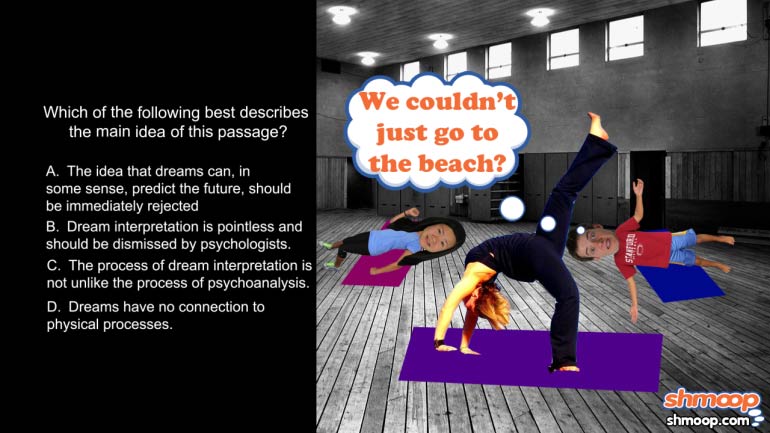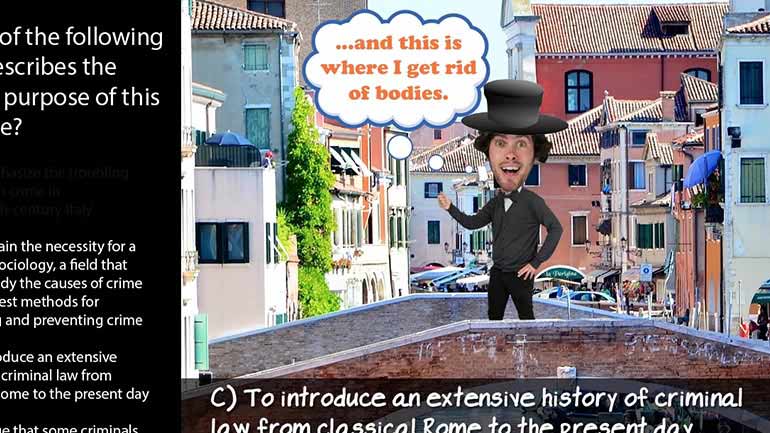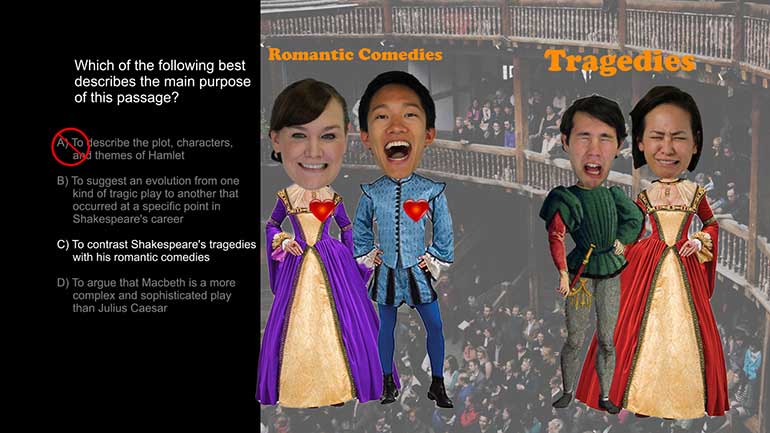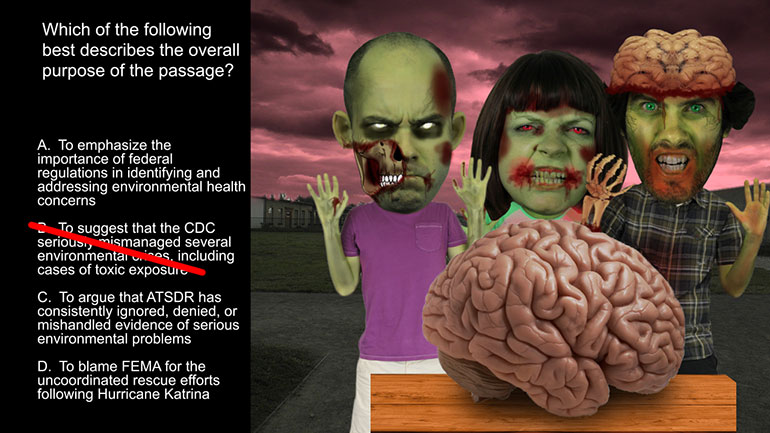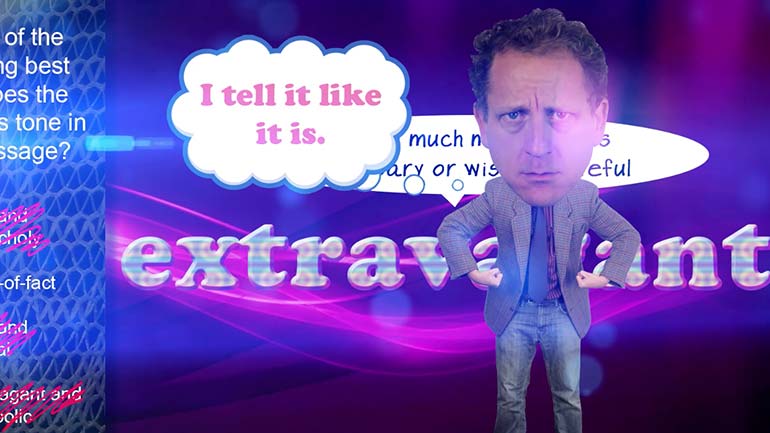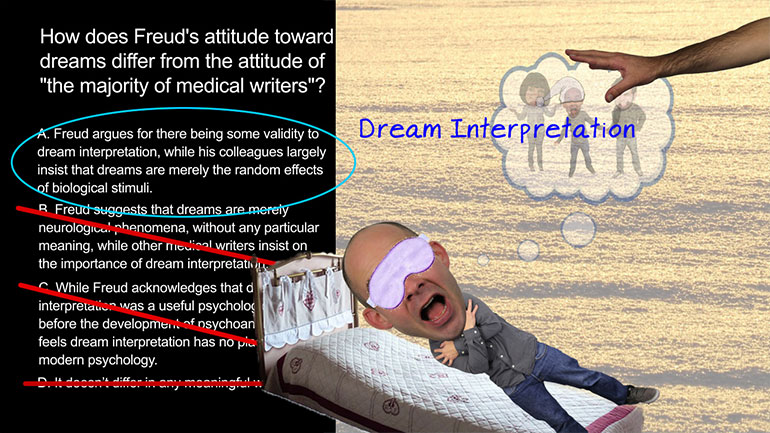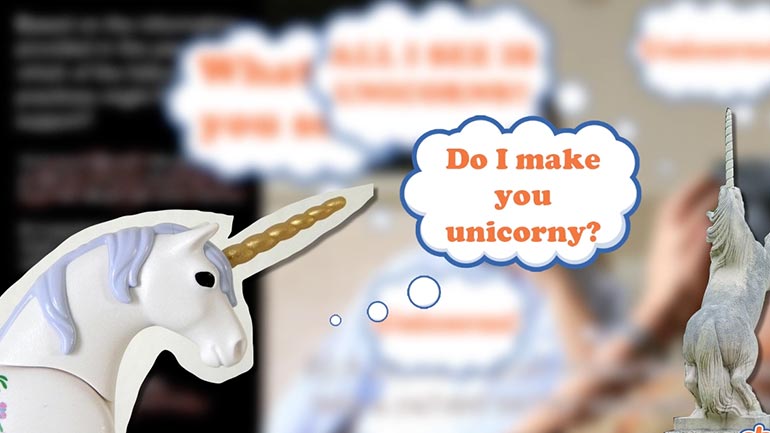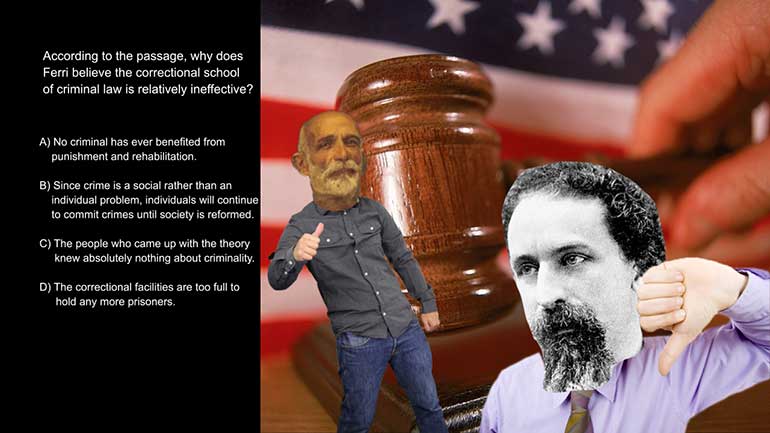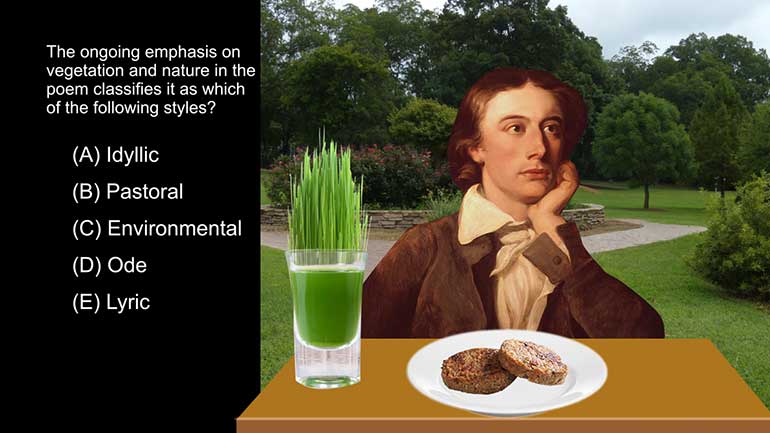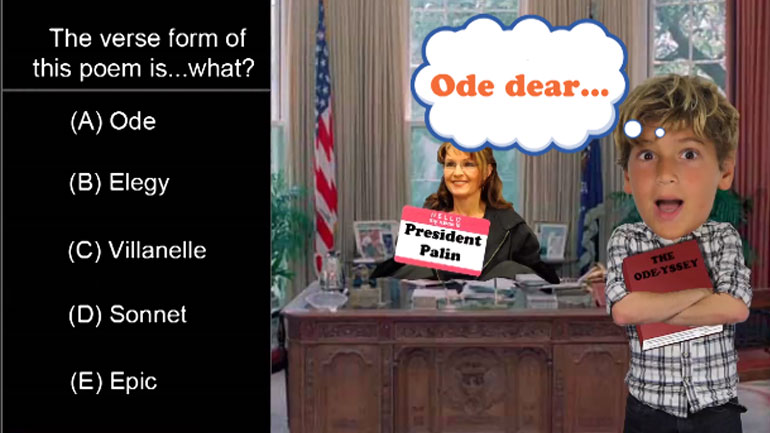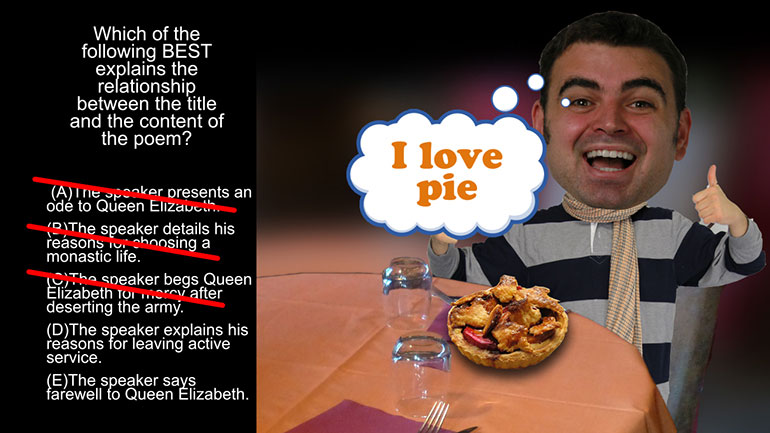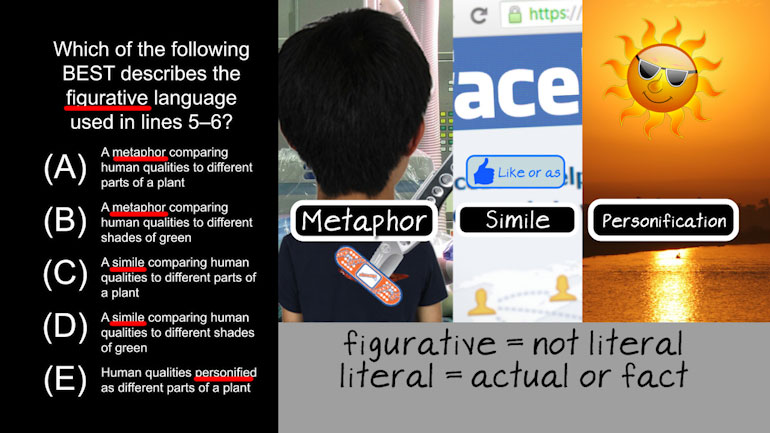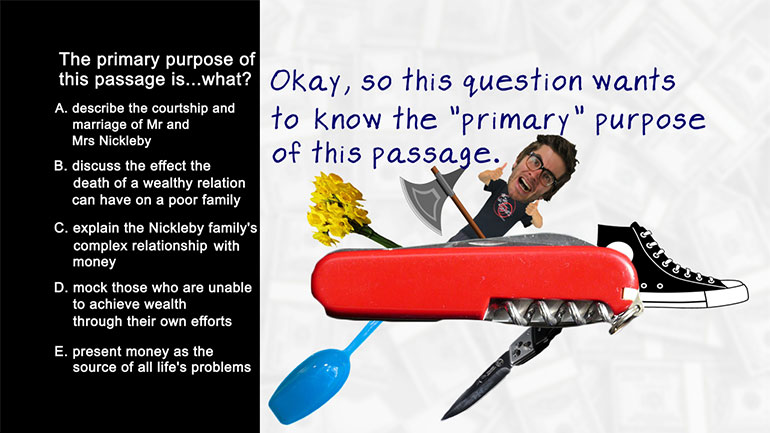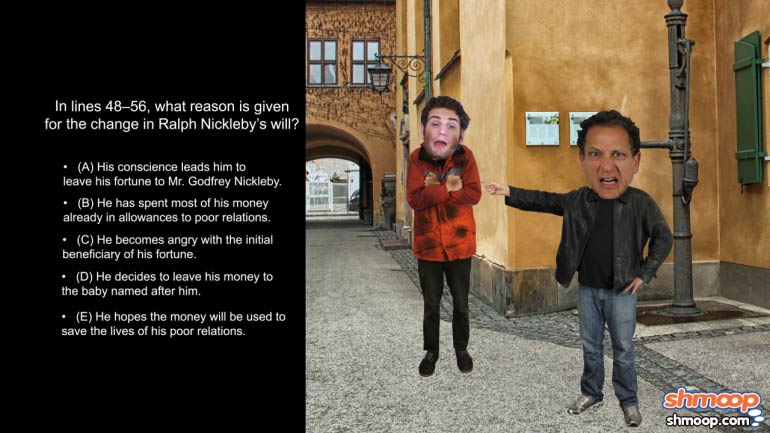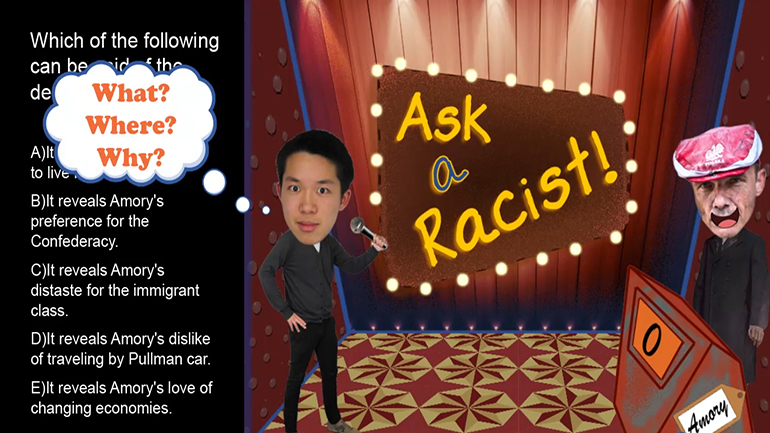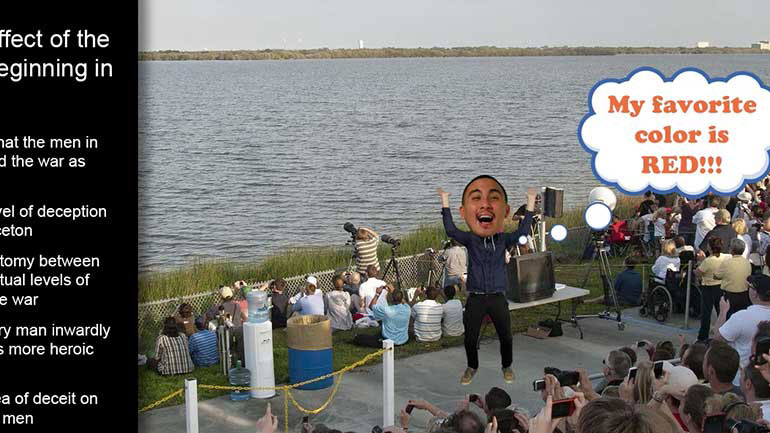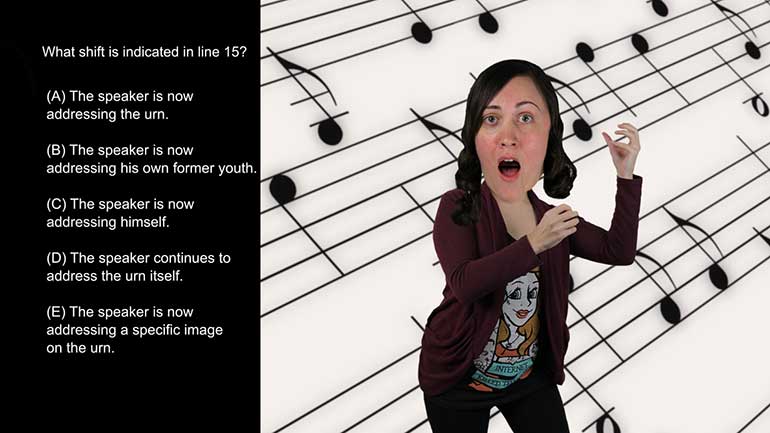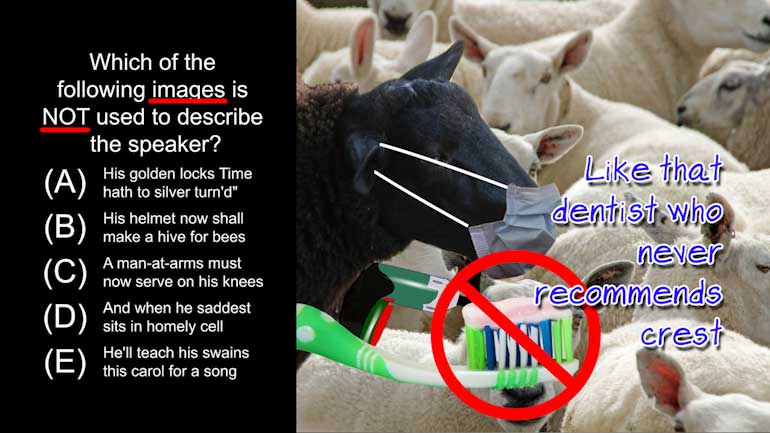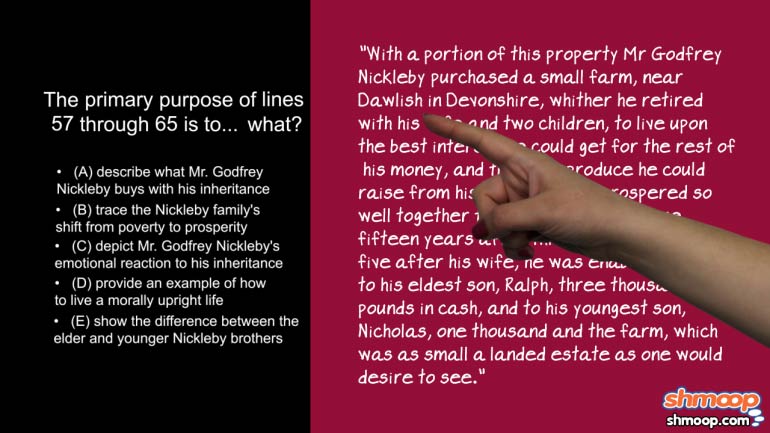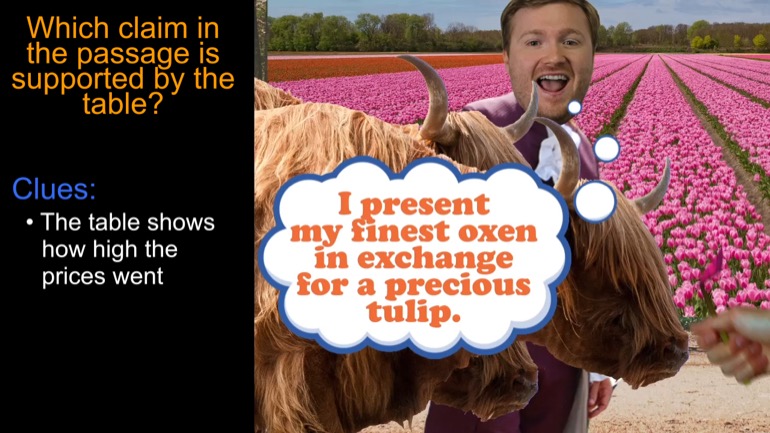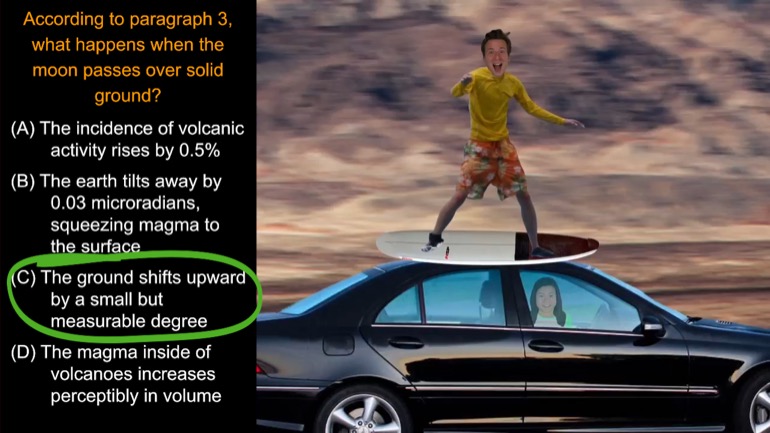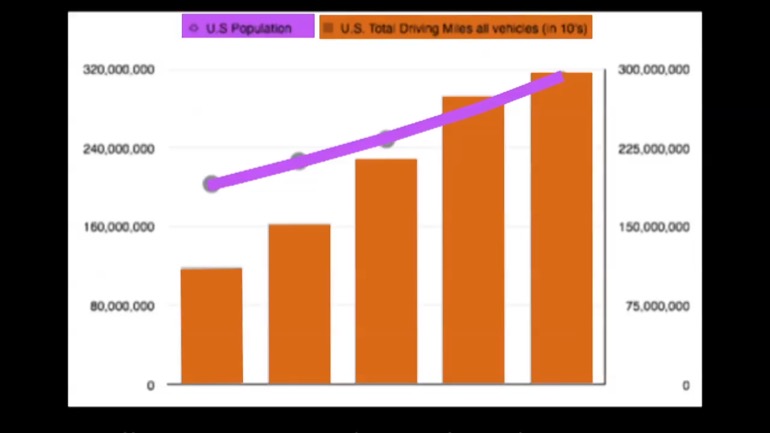ShmoopTube
Where Monty Python meets your 10th grade teacher.
Search Thousands of Shmoop Videos
Reading Videos 248 videos
ACT Reading 1.5 Prose Fiction. Which of the following is the best definition for the word "posthumous" in line 67?
ACT Reading 1.9 Prose Fiction. Based on its context in the passage, which of the following is the best definition for the word "indignation"?
ACT Reading 2.4 Prose Fiction. Based on its context in the passage, which of the following is the best definition for the word "impunity"?
AP English Literature and Composition 1.8 Passage Drill 7 216 Views
Share It!
Description:
AP English Literature and Composition 1.8 Passage Drill 7. The primary purpose of lines 58 through 66 is to what?
- Product Type / AP English Literature
- Reading / Audience and Purpose
- English / Audience and Purpose
- Literary Fiction / Narration and Tone
- Reading Literature / Cite textual evidence to support analysis
- Reading Literature / Cite textual evidence to support analysis
- Reading Literature / Cite textual evidence to support analysis
- Audience and Author's Purpose / Identifying author's rhetorical purpose
Transcript
- 00:04
It's time for your daily dose of shmoop...
- 00:11
This passage is calling your name. It wants you to press pause and give it a read.
- 00:17
Don't ask how it knew your name. We swear we didn't say a word.
- 00:43
The primary purpose of lines 57 through 65 is to... what?
- 00:48
And here are the potential answers...
Full Transcript
- 00:50
Well, if we want to know the purpose of something... guess we should be familiar with it first.
- 00:55
Whoa. Not that familiar.
- 00:58
Here are lines 57 through 65:
- 01:00
"With a portion of this property Mr Godfrey Nickleby purchased a small farm, near Dawlish
- 01:05
in Devonshire, whither he retired with his wife and two children, to live upon the best
- 01:10
interest he could get for the rest of his money, and the little produce he could raise
- 01:13
from his land. The two prospered so well together that, when he died, some fifteen years after
- 01:19
this period, and some five after his wife, he was enabled to leave, to his eldest son,
- 01:24
Ralph, three thousand pounds in cash, and to his youngest son, Nicholas, one thousand
- 01:29
and the farm, which was as small a landed estate as one would desire to see."
- 01:34
Okay, now let's take our answer choices one by one and see which one lands...
- 01:39
Is this paragraph describing what Godfrey Nickleby buys with his inheritance?
- 01:45
Well... yeah... but is that the purpose of it?
- 01:50
Hm... not likely. We're pretty much done with the purchasing part of it by the end of the
- 01:55
first sentence... there's more meat here than that...
- 01:58
Is it tracing the Nickleby family's shift from poverty to prosperity?
- 02:03
Bingo. Here we have an option that relates to the entire paragraph, not just a piece of it.
- 02:09
We'll take a quick look at the remaining answers just to make sure there isn't a better option...
- 02:12
although we're not going to bet Nicholas' farm on it.
- 02:18
There's no emotional reaction discussed, so C is out...
- 02:21
...there's no judgment being made about what constitutes a "moral life," so D ain't coin' it for us.
- 02:27
...and there's no real difference mentioned between the two brothers... other than their different tax brackets.
- 02:32
So yeah... B's our answer.
- 02:33
As in, "Bet the farm."
Related Videos
AP English Literature and Composition 1.4 Passage Drill 3. How is Burne's view of pacifism best characterized in lines 57 through 67?
AP English Literature and Composition 1.6 Passage Drill 5. Death is primarily characterized as what?
AP English Literature and Composition 1.2 Passage Drill 4. As which of the following is the object being personified?
AP English Literature and Composition 1.7 Passage Drill 5. Which line indicates the turn or shift in this poem?
AP English Literature and Composition 1.9 Passage Drill 4. Lines 32-34 are best understood to mean what?
